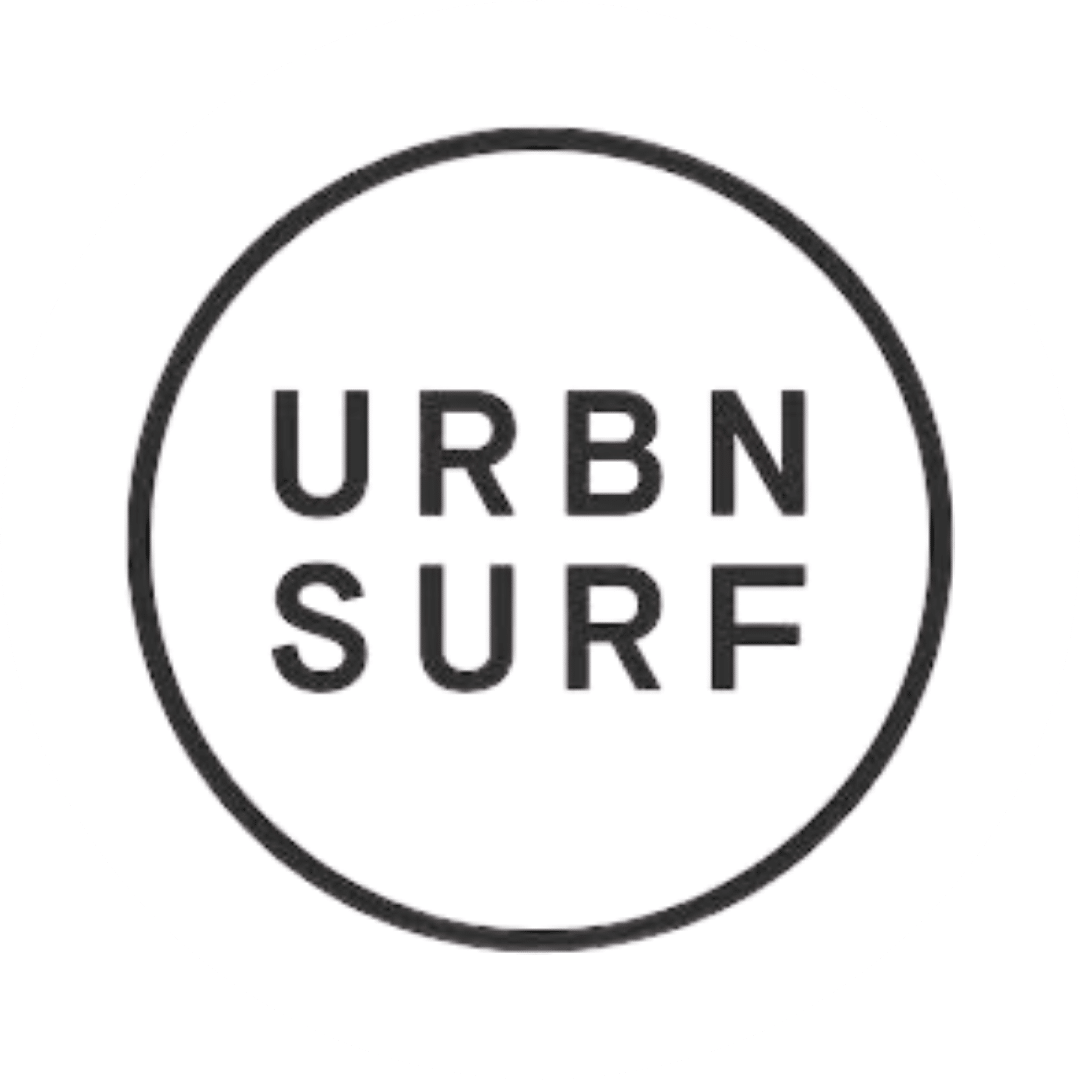From chaos to clarity - how an SEO strategy brings focus
Attempting SEO without a strategy is like playing darts blindfolded. You might get lucky and hit the bullseye once in a while, but you'll likely miss the mark more often than not. It's like throwing spaghetti at a wall and hoping something sticks. Sure, you might get a few pieces to stay up there, but most of it will fall to the floor.
A solid SEO strategy is like a roadmap, guiding you to your destination with purpose and direction. And because we know that SEO is not a one-size-fits-all solution, at Rocket, we believe that every new client engagement should start with thorough research and strategy development. Every client is unique, and their online marketing strategy should reflect that.
Our SEO Strategy Development
During our research phase, SEO specialists at Rocket dive deep into your business, your industry, and your target audience. We analyse your current SEO performance and identify areas for improvement. We also conduct competitor research to gain insights into their SEO tactics and identify opportunities for your business to gain an edge. Armed with these insights, we’ll then build out a roadmap of SEO deliverables designed with your business success in mind.
Keyword research
Focus where the opportunities are greatest. More than simply finding what your target audience is using to search for your products and services, we build a comprehensive and integrated document of opportunities grouped by themes and sub-themes, that powers your entire content strategy.
Content strategy
Whether it’s creating new content or improving existing content, our approach ensures that all content is prioritised in line with opportunities identified in earlier stages of research. From evergreen pages to blog content and video resources, we deliver a data-driven content roadmap that sets you up for success.
Technical SEO strategy
Your website needs strong technical foundations for SEO to be its most effective, and the larger your site is, the more difficult this can be to manage. We create technical roadmaps for developers that balance the SEO impact of the work with the challenges of implementation.
IA and taxonomy reviews
Help search engines better understand the content on your site by ensuring it reflects the hierarchy of your topics. A thorough IA (Information Architecture) and taxonomy review can identify areas where your site's organisation can be improved, such as rebuilding navigation, consolidating redundant content or reorganising webpages to improve SEO results.
Competitor research
Stay one step ahead of your closest competitors. Our competitor research audits include an analysis of your competitors' keyword usage, a review of their backlink profiles, and a look at their website structure and content. It also involves identifying gaps in your competitors' coverage and recommending content that fills those gaps.
Backlink strategy
Improve your website's authority with a thorough analysis of your website's backlink profile. A backlink audit identifies potential issues that may be negatively impacting your search engine rankings, looking at the quality and relevance of your backlinks. This may also involve identifying and disavowing low-quality or spammy backlinks that could be harming your website's reputation.
Industry-recognised digital agency







Why choose Rocket for SEO Strategy?
We’re an SEO agency of 50+ digital specialists with a proven record of developing SEO strategies that directly lead to increased search engine visibility, traffic and conversions for our clients.
We get
business
business
At Rocket, we don’t just understand SEO, we understand business. We have experience with hundreds of clients of every type and across every industry imaginable, you can be sure that we will get what makes you unique and will reflect that in our SEO strategy for your business.
Data-driven approach
All the research in the world means nothing if you don’t know how to interpret the data. At Rocket we’re very confident in our ability to analyse data and draw the right insights to build SEO strategies to capitalise on positive trends and reverse negative trends.
100% transparency
An SEO strategy shouldn’t be something that’s executed in a silo. Our team will explain where your opportunities are, and how we intend to capitalise on them. Effective communication is crucial to ensure that our campaign objectives align with your expectations.
We're invested in your results
Over the years we’ve developed strategies that have powered many successful SEO campaigns, and won awards from Australian and international authorities for our strategic approach to digital marketing.
Meet our SEO Team
With technical expertise and content strategies that climb rankings and attract high-quality traffic, our Rocket power ensures you get found first.

Webinar: Digital Marketing in Australia
Join us for a live, moderated 60-minute webinar presented by James Lawrence on the latest changes to digital marketing. Understand attribution and data challenges, AI and how to balance brand and performance ads. Get 8 actionable steps to get digital right this year.
Stay Ahead in Digital Marketing
Join 20K+ Marketers Who Get the Inside Scoop
Custom SEO strategies for all types of businesses

An ecommerce SEO strategy involves optimising product detail and listing pages, category pages, and other important pages that can drive traffic and conversions. It’s also important that we review how shoppers are able to locate products on site, with pages for common searches and the right combination of search filters.
Ecommerce strategy can also involve how to manage discontinued or seasonal items, advising on mega-menus for navigation, and resolving challenges that search engines may have crawling extremely large sites.
Rocket’s SEO specialists are pros at driving quality organic traffic to your Ecommerce store to maximise conversions.

SEO strategy for local businesses typically involves optimising for location-specific keywords, creating local business listings on Google My Business and other directories, building local citations, and gathering reviews from customers.
We’ll also advise on how best to present your location(s) on site, and advise on how to maximise the potential for clicks and calls on those pages.
Rocket has implemented award-winning local SEO campaigns for clients like Plus Fitness, Jamesons Strata, Aurrum Kids and the like.

Differences between B2B and B2C companies may include in target audience (usually a smaller group of decision-makers), sales cycles (typically longer), and buying behaviours (more research and consideration).
Therefore, the SEO strategy we propose for a B2B business will focus on creating content that addresses the specific pain points, needs, and interests of this target audience, while also establishing the business as a thought leader in its industry.
Rocket has delivered high-converting and high-raking SEO content for a range of B2B businesses, helping to reduce media spend and reliance on paid ads.
Partner with Rocket for comprehensive strategy development
Let’s talk
Speak to one of our Senior Consultants to clarify your marketing objectives.
Kick-off SEO campaign
Our team of SEO specialists will identify opportunities through detailed research, and provide strategic direction for your business.
Dominate search results
Watch your organic visibility improve as we execute the custom roadmap we’ve prepared with your objectives in mind.
Rocket has been featured in:











Our process
Ever since we’ve been in business as an SEO agency, we’ve developed a proven approach to providing SEO services in Australia. But what truly sets us apart is our deep understanding of what it takes to perform in Sydney’s digital market.
Being on the ground in Sydney means we have a front-row seat to the local search trends and industry shifts that impact your rankings. Our team doesn’t just implement best practices - we apply strategic thinking grounded in local market insights. From technical SEO to content and UX, we direct our efforts toward what actually moves the needle for Sydney businesses. Whether you’re targeting customers in the CBD, Inner West, or Greater Western Sydney, we tailor your strategy to meet the expectations and behaviours of your local audience.
In a city as competitive as Sydney, knowing your competitors is essential. Our competitor research digs deep into the structure of high-ranking Sydney-based websites in your industry. We analyse how they use content, internal linking, backlinks, keyword targeting, and site architecture to dominate local SERPs (Search Engine Results Pages). This analysis provides us with an industry benchmark that we can build upon when crafting your strategy.
A site audit is the process of identifying technical errors and limitations that are impacting your website’s ranking. Whether you're a business targeting the Inner West, Northern Beaches, or Greater Western Sydney, this audit will reveal various insights into your site’s health including:
- User experience across both desktop and mobile for your audience
- Whether your site is being properly crawled, rendered and indexed by Google
- The current state of your on-page and off-page SEO
- Identification of duplicate, thin, or underperforming content
We also set up advanced tracking systems to measure what really matters—how many visitors from SEO convert by booking a call, completing a purchase, or taking another key action on your site. This data gives us the insights to continually refine your strategy and keep you competitive in Sydney’s fast-moving digital landscape.
From current industry trends to common issues affecting your target audience, keyword research offers guidance into not only your SEO efforts but also your broader marketing strategy.
At Rocket, we use keyword research to uncover real search behaviours, local trends, and pain points that matter to your audience. Our team leverages multiple keyword research tools and Australian market data to extract search terms driving digital footfall to your website, as well as untapped opportunities for better visibility. These insights don’t just inform your SEO - they shape your broader content and marketing strategy so your business shows up where it counts.
You wouldn’t stick around to read a boring, typo-ridden article - and neither will your audience. That’s why great copy matters, especially in competitive markets where attention spans are short and expectations are high.
At Rocket, our team of copywriters create diverse and engaging content that speaks your audience’s language - creating content that builds trust, boosts visibility and keeps users exploring your site. Whether it's blog posts, service pages, or downloadable guides, we craft content that not only ranks but resonates.
Link building is a core part of any successful SEO strategy - it’s how Google gauges credibility and discovers new content. By acquiring quality backlinks from reputable sources, your website earns trust, ranks higher and gets discovered faster.
Our specialists focus on strategic link building for businesses, prioritising links from Sydney-based publishers, industry directories and trusted news outlets. These locally relevant backlinks not only boost your visibility in search engines but also strengthen your presence within the Sydney market without over-optimisation.
Technical SEO handles the nuts and bolts of website functions that users take for granted. While other elements of SEO focus on on-page elements, technical SEO concentrates on behind the scenes. Think page speed, XML sitemaps, domain names, URL structure, breadcrumb navigation, HTML, JavaScript and CSS. While highly technical, these details are key to ensuring Google properly indexes, renders and crawls your website.
The complicated demands of technical SEO require IT specialists who know the ins and outs of website structure. Rocket’s technical SEO experts make calculated adjustments to the hidden details of your website in order to boost its overall performance.
Local SEO is essential for any business that wants to rank in Sydney.
Almost 50% of all Google searches are location-based, and many of them include phrases like "near me" or specific suburb names. Our SEO specialists make sure your business shows up when it matters most - right when someone nearby is ready to buy or book.
We do this through:
- Optimising your Google Business Profile for maximum local visibility
- Targeting location-based keywords that your audience is actually searching for
- Building backlinks from Sydney-based websites, directories, and media outlets
We don’t just optimise - we fine-tune your website and content to connect with Sydney locals, from the Inner West to the Northern Beaches and everywhere in between.
Latest Google Reviews
Visit Our Offices
Our Sydney office is located in the creative heart of Surry Hills, just a 3-minute walk from Central Station. You'll find Rocket's second home in QV Melbourne, right near the State Library. If you're nearby, we'd love to catch up over a coffee.






SEO Blogs
We’d love to help you develop an SEO strategy for your business.
Drop us a line.
SEO Strategy FAQs
Any type of business that has a website can benefit from an SEO strategy. Whether it's a small local business or a large multinational corporation, having a strong online presence is essential for reaching potential customers and increasing revenue. New businesses can benefit from SEO strategy development in order to establish a strong online presence from the beginning and reach potential customers early on. Small businesses that serve a specific geographic area can benefit from local SEO strategies, which focus on optimising their website for local search queries. And all lead generation businesses and ecommerce stores have their own unique features that make bespoke SEO strategy creation essential.
The time it takes to develop an effective SEO strategy can vary depending on a variety of factors such as the size of the website, the scope of the project, the complexity of the market, and the competitiveness of the industry.
Generally, a comprehensive SEO strategy can take some weeks to develop as it involves a thorough analysis of the website, the industry, the competition, and the target audience. It also requires developing a clear understanding of the client's goals and objectives and aligning them with the SEO strategy.
However, it's important to note that SEO is an ongoing process, and strategies may need to be adjusted and updated over time as search engines and consumer behaviours evolve. So, while it may take some time to develop an initial strategy, it's important to view SEO as a continuous effort rather than a one-time project.
Successful SEO strategy development requires several key components. Firstly, it is important to conduct comprehensive research to identify the target audience, keyword opportunities, and competitor landscape. This research helps to inform the overall strategy and ensure that the content is optimised for the right keywords and audience.
Secondly, a technical SEO audit is crucial to ensure that the website is optimised for search engines and that there are no technical issues that could impact the website's performance in search results.
Thirdly, a content strategy is essential to ensure that the website has high-quality content that is optimised for the target keywords and audience. This can include on-page optimization, such as meta tags and headers, as well as off-page optimization, such as content marketing and link building.
Lastly, ongoing analysis and optimization are important to ensure that the strategy is effective and to identify any opportunities for improvement. This can include monitoring keyword rankings, analysing website traffic, and making changes to the strategy as necessary.
Content is a crucial component of a successful SEO strategy. Search engines value high-quality, relevant, and engaging content that satisfies user search queries. Without good content, it is difficult to rank well in search engine results pages (SERPs) and attract traffic to your website. And content does not mean just blogs - content can take many forms, including articles, videos, white papers, infographics, and more.
Creating and promoting high-quality content can also help attract backlinks from other websites, which is another important factor in search engine rankings.
We usually start by identifying quick wins - any low-hanging fruit, or tactics that can be implemented quickly and easily but still have a significant impact on your SEO. This can help build momentum for your overall strategy.
Next, we’ll assess the potential impact of each tactic, as well as evaluating the resources required to implement each tactic, including time, budget, and complexity.
Based on the above, we’ll then create a roadmap that prioritises the tactics we will implement and when.
While paid search and social media advertising can complement an SEO strategy, they are not necessary for success. A strong SEO strategy can drive organic traffic to a website and improve its search engine rankings without relying on paid advertising. However, it is important to note that each business is unique and its specific needs and goals may require a different mix of digital marketing tactics. Ultimately, the success of an SEO strategy will depend on a variety of factors, including the quality of the content, technical SEO elements, backlink profile, and overall user experience of the website.


































































